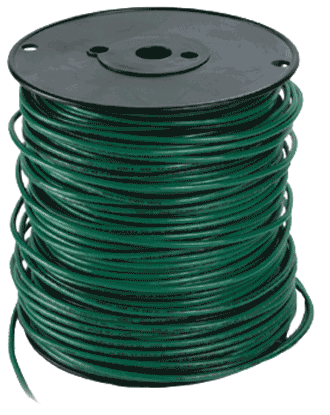I talk a lot about grounding here on the blog, because it’s one of the most important things you’re not doing. Yeah, I know, you spend a lot of time up on the roof getting that TV antenna, satellite dish, or cell phone repeater up there, and proper grounding is not going to help you get better reception or anything. I also know that ground wire is expensive; not only to buy but also to ship. It’s a pain. So you don’t do it.
Just don’t come crawling back to your Uncle Stuart after a lightning strike that kills all your electronics and sets your home on fire. Because, I’ll say “I told you so.” I’m that guy, yes I am.
Getting into the details
But let’s get past that for a minute and talk about the difference between “grounding” and “bonding.” Generally when you’re talking about a home installation, you’re almost always talking about grounding, but occasionally you’ll read or watch a tutorial that uses the word “bonding” instead of “grounding” and yet it seems like they’re talking about the same thing. So what’s the difference? It’s actually pretty simple.
If you’re going to get really technical, “grounding” means you’re actually attaching a thing, through a ground wire, to the real actual earth. In other words the ground wire leads to a grounding rod or post, something that’s actually in the ground. This is the only accurate use of the word “grounding.”
If you’re connecting to a breaker box, cold-water pipe in the attic, or anything that “eventually” makes its way to the earth, technically that’s “bonding.” The difference is that there’s already an established grounding system for the building you’re in and you’re just connecting to it. Disconnecting from it doesn’t make it go away.
But does it really matter?
In homes, this isn’t a big distinction. I urge each and every one of you to check with your local ordinances. In many cases you can simply strap that ground wire to a cold water pipe or connect it to the breaker box or to a grounded outlet, and you’re done. That’s all it takes to follow the rules in most areas. That’s a lot easier than running a ground wire all the way to the earth and then driving a ground rod in deep enough for it to stay permanently. Bonding to an established system like a water pipe or electrical system also keeps you from having a potentially unsightly wire outside where a spouse could complain about it.
Now, if you’re a commercial installer, you should probably be careful when you say “grounding” and where you say “bonding.” But if you’re at home, it’s far more important that you do it right; you can say whatever you want.
Get what you need from Solid Signal
Solid Signal is your source for all the grounding and bonding supplies you need for any size project. When you’re ready to start, check out the great selection you’ll find when you shop at our web site! If you have any questions, reach out to us at 888-233-7563 and our techs will be happy to help!





